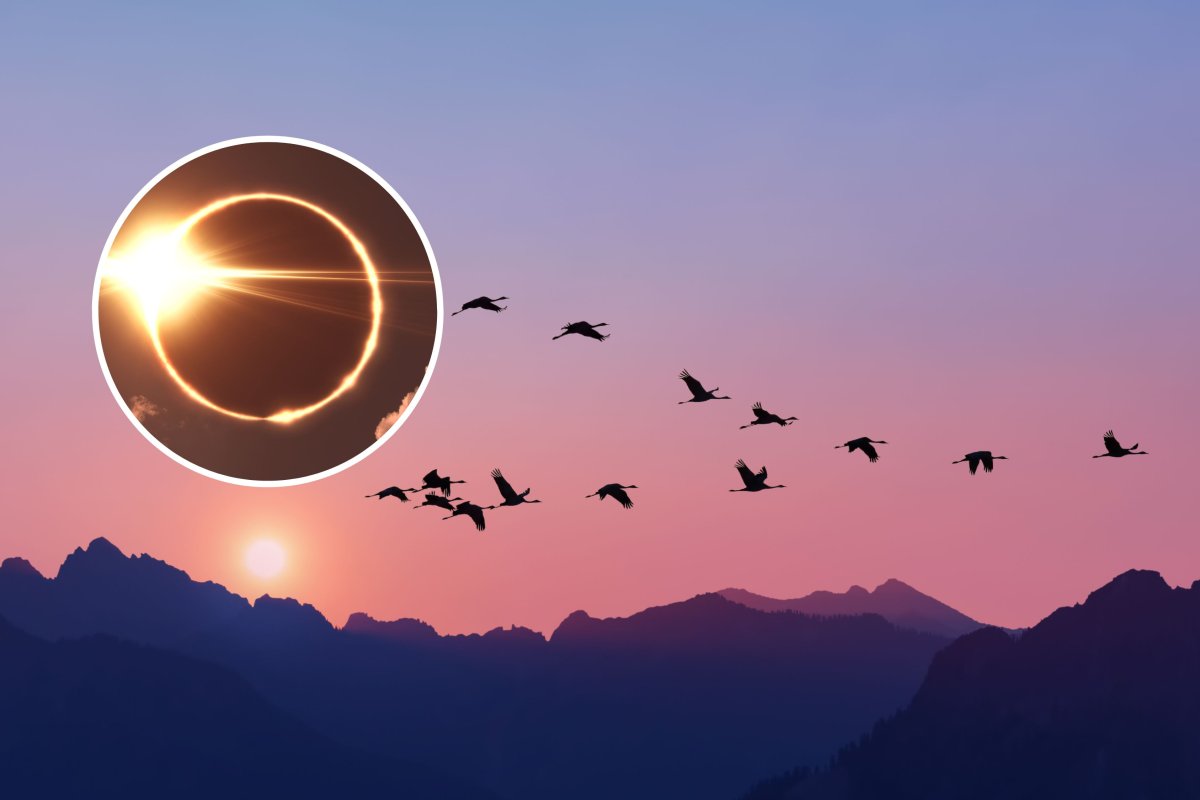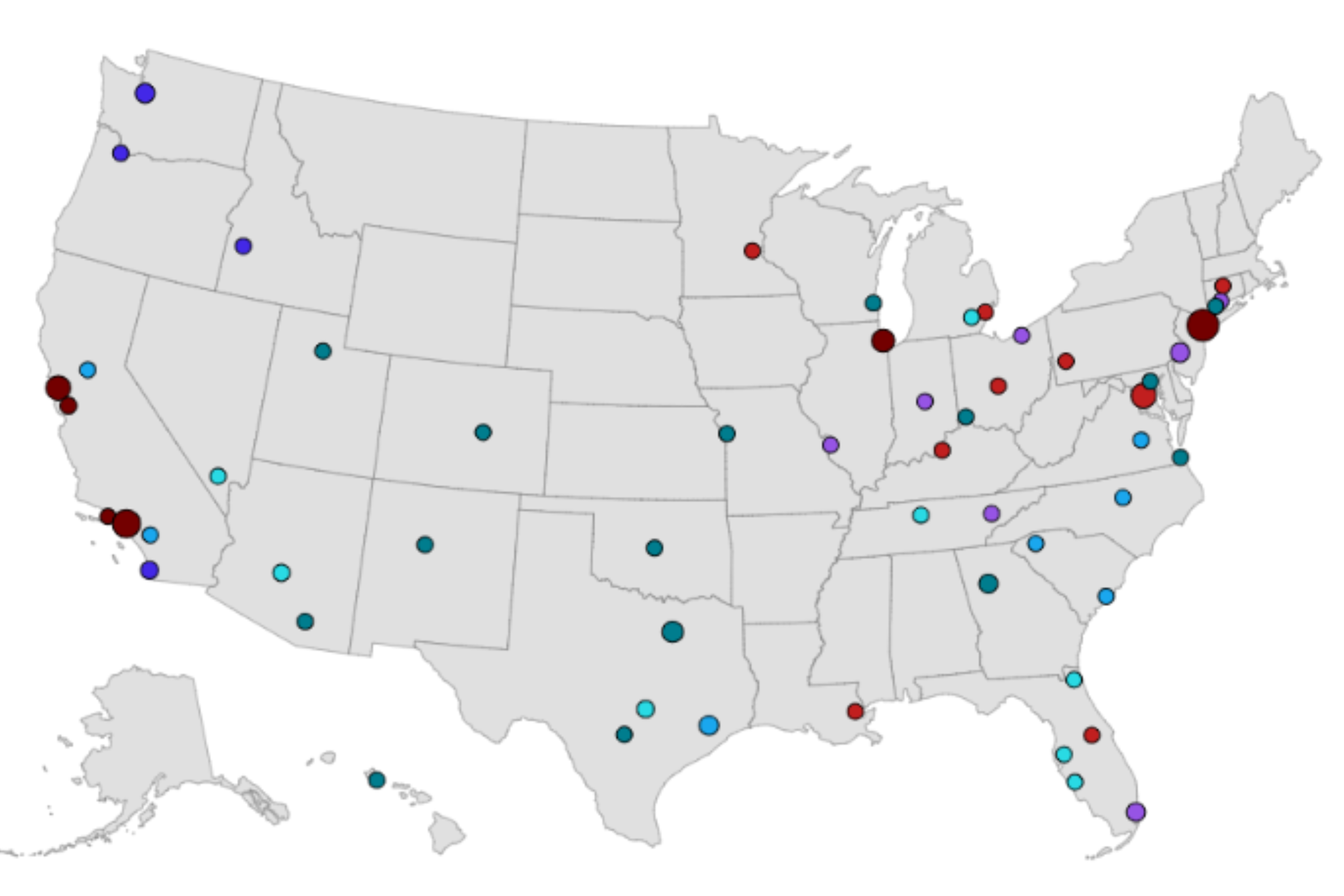Birds were observed acting strangely during the recent total solar eclipse that stunned much of the United States earlier this month.
Researchers from the Cornell Lab of Ornithology noticed that there was a decrease in the daytime activities of birds during the sudden darkness of the eclipse on April 8. These changes in behavior were similar to those seen during the 2017 eclipse, but much more noticeable.
Cornell researchers measured the airborne activity of birds, bats, and insects during the totality using U.S. weather radar stations in the path of the eclipse. They saw that the birds' daytime activities, like swooping, decreased as the sun disappeared behind the moon.
"From the data we've analyzed so far, it looks like a similar pattern of aerial biological activity that we documented during the 2017 solar eclipse, but it was even more pronounced," Andrew Farnsworth, a visiting researcher at the Cornell Lab of Ornithology, said in a statement.
"The 13 weather radar stations in the path of the April eclipse measured noticeable decreases in typical daytime biological activities such as the movements of hawks and other soaring and insect-eating birds like swallows—but, as in 2017, the daytime darkness was not enough to trigger nocturnal migration activity."
This may have been due to the eclipse's short duration, which lasted only 4 minutes in most locations along the path of totality.
The researchers had announced their intentions to study bird activity during the eclipse several weeks prior, which resulted in them receiving many observer reports of bird behavior.
"There was lots of engagement, much more excitement and human participation in the eclipse than in 2017," Farnsworth said.
"We got some audio recordings that document the drop-off in some of the daytime sounds of birds and an increase in nighttime sounds of some insects during the eclipse, differences in the number of birds people were seeing, and other clear signals of the light-level change—vultures and other birds starting to roost, for example. All along the eclipse path, many people reported hearing barred owls spontaneously vocalizing as if it were dusk when the owls would normally be ready to start hunting."

These results are still preliminary and are yet to be published in a peer-reviewed scientific journal. The researchers hope to analyze the data in much more detail, investigating if there was a link between the birds' behaviors and the position of the eclipse in the sky, the time of day of the eclipse, and how much sunlight was seen during the day. They also hope to compare the behavior of the birds, insects, and bats with the weather in certain locations to elucidate if wind or rain during the eclipse had any impact.
Other animals were seen to act strangely during the most recent solar eclipse.
The San Antonio Zoo posted videos on X, formerly Twitter, of their animals freaking out as the sun suddenly disappeared that showed "meerkats, during totality, erratically running throughout their habitat as one large group," as well as whooping cranes "dancing" and flamingos "congregating."
"Meerkats approaching and entering their indoor habitat space in the few minutes prior to totality...supported our working hypothesis that diurnal animals, meaning those awake during the day, would display their typical evening activity patterns during totality," the zoo wrote on X.
Animals react to the solar eclipse! 🌑☀️
— San Antonio Zoological Society 🦍 (@SanAntonioZoo) April 9, 2024
Clip 1: Meerkats, during totality, erratically running throughout their habitat as one large group!
Clip 2: Whooping cranes dancing just after totality
Clip 3: Flamingos congregating during totality
Clip 4: Meerkats approaching and… pic.twitter.com/xIM1RttQBS
The Cornell researchers also hope to do a different study into how birds behave during annular eclipses, which occur when the moon is further away from the Earth in its orbit, meaning that it does not completely cover the sun, it leaves a ring-like shape of the sun visible around its edges. These were seen in the U.S. in 1994, 2021 and 2023.
"What aerial bird behaviors does a reduction in light levels shut down? What doesn't it shut down?" he said. "It's more than a curiosity that lasts for a few minutes. You can expand it to a much bigger picture examination of the ways animals perceive cues from their environment, a grander sort of sensory ecology study," Farnsworth said.
The next total solar eclipse to be visible from the U.S. won't be seen until 2044.
Do you have a tip on a science story that Newsweek should be covering? Do you have a question about eclipses? Let us know via science@newsweek.com.
Uncommon Knowledge
Newsweek is committed to challenging conventional wisdom and finding connections in the search for common ground.
Newsweek is committed to challenging conventional wisdom and finding connections in the search for common ground.
About the writer
Jess Thomson is a Newsweek Science Reporter based in London UK. Her focus is reporting on science, technology and healthcare. ... Read more
To read how Newsweek uses AI as a newsroom tool, Click here.








